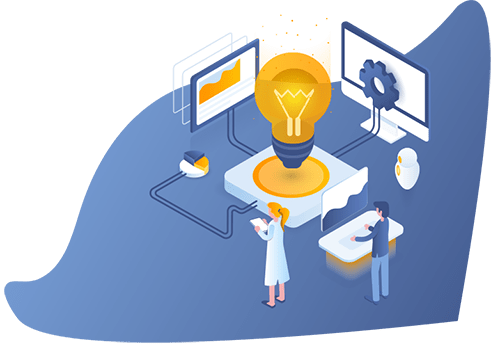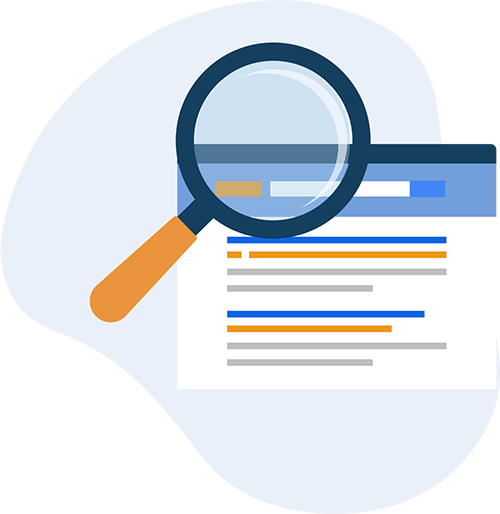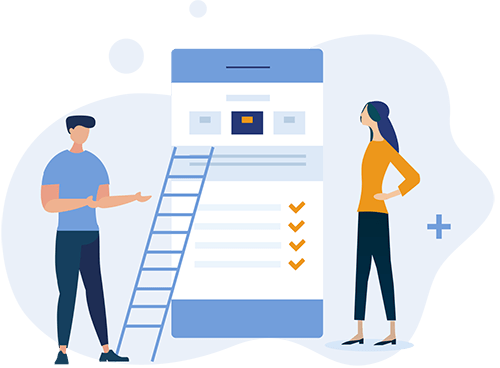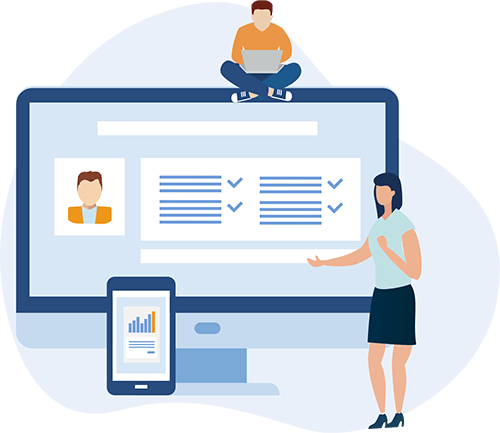ERP
ERP for IT Services Companies: the Business Management Solution for Greater Peace of Mind
Contents
What is ERP for IT services companies?
The definition of an ERP for IT services companies refers to an ERP system specifically designed to meet the needs of IT services companies. An IT services company is a company that provides IT and digital services such as software development, software management, technical support, maintenance, and so on.
ERP software for IT services companies is designed to help manage their internal activities efficiently, including human resources, project planning, contract management, invoicing, purchasing, and inventory control, and other specific operational processes.
Key functionalities of an ERP tool for an IT services company may include:
- Human resources: skills management, deployment of assignments, tracking of hours worked, leave control, etc.
- Project management: project planning, resource allocation, milestone and budget tracking, deployment of deliverables, etc.
- Contract tracking: monitoring customer transactions, clause analysis, invoicing, payment tracking, etc.
- Customer relations: monitoring prospects and customers, controlling contacts, tracking opportunities, etc.
- Purchasing and inventory management: supplier control, purchase order tracking, hardware inventory tracking, etc.
- Invoicing and accounting: generating customer invoices, tracking payments, controlling accounts, financial reports, etc.
What are the functionalities of ERP for IT services companies?
ERP for IT services companies functionalities can vary according to the specific needs of each company. Here are some of the features commonly found in ERP software designed for IT services companies:
HR management:
tracking employee skills, managing schedules and assignments, monitoring hours worked, tracking leave and absences, performance appraisal and advice, etc.
Project management:
mission planning, resource allocation, milestone and deadline monitoring, budget control, risk analysis, team collaboration, etc.
Contract and customer planning:
follow-up with customers, monitoring of contractual clauses, consideration of calls for tender, management of customer relations, monitoring of business opportunities, etc.
Purchasing and inventory management:
Supplier management, purchase order tracking, hardware inventory management, software license management, etc.
Finance department:
customer invoicing, monitoring payments and receipts, tracking expenses, taking overheads into account, general accounting, financial reporting, etc.
Customer relationship management (CRM):
tracking prospects and customers, contacts, sales activities, marketing campaigns, customer interactions, etc.
Performance indicator tracking:
dashboard with key performance indicators (KPIs) to monitor company performance, analyze financial and operational data, make data-driven decisions, etc.
Quality control:
monitoring quality indicators, controlling non-conformities, corrective and preventive actions, certifications, etc.
Collaboration and communication:
internal messaging functionalities, document sharing, task management, online communication tools, etc.
Mobility:
Remote access to ERP functionalities via mobile applications, enabling employees to work on the move.
It is important to note that the list of functionalities may vary according to the specific needs of each company and the specific functionalities of the chosen ERP.

What are the benefits of using an ERP for IT services companies?
There are many advantages to using ERP (Enterprise Resource Planning) software for IT services companies, including:
A global view of the company
The advantage of an ERP is that it provides a global view of all business activities, from HR management to finance and business tracking. This gives managers a better understanding of their organization, enabling them to make more informed decisions.
Better human resources management
It enables you to manage employee skills, schedules and assignments, hours worked, vacations and absences, performance appraisals, and so on. This optimizes the HR department and improves productivity.
More efficient project management
It enables you to plan assignments, allocate resources, monitor milestones and deadlines, manage budgets, risks and collaboration between team members. This saves time and money by avoiding delays and budget overruns.
Better contract and customer management
An ERP tool makes it possible to track contracts with customers, manage contractual clauses, calls for tender, customer relations, track business opportunities, and so on. This enables better management of customer relations and optimizes company profitability.
Improved financial profitability
It enables you to invoice customers, track payments and receipts, manage expenses, various overheads, general accounting and financial reporting. The result is greater control over company finances and improved profitability.
Improved quality
It enables you to monitor quality indicators, manage non-conformities, corrective and preventive actions, certifications and more. This improves the quality of the services provided, and boosts customer satisfaction.
More effective collaboration and communication
It features internal messaging, document sharing, task and project tracking, online communication tools and more. This improves collaboration and communication between team members.
In short, the use of an ERP for an ESN helps to optimize employees’ missions, improve productivity, profitability and the quality of services provided, as well as enhancing customer satisfaction.
How to choose the best ERP for your IT services company?
Choosing the best ERP for an IT services company will depend on the company’s specific needs. Here are a few steps to follow to choose the best:

Analyze business needs
The first step is to analyze employee needs, taking into account the different business processes and the functionalities required to manage them. It’s important to consider the needs of every department, including HR, business management, financial control, customer relations, etc.
Define selection criteria
After analyzing the company’s needs, it’s important to define the selection criteria for choosing the best ERP project. Criteria can include functionality, flexibility, scalability, ease of use, integration with other systems, security, cost, technical support, etc.


Identify potential solutions
Once the selection criteria have been defined, it’s time to identify potential ERP tools that meet the company’s needs. There are many ERP solutions on the market, some of which are specifically designed for ESN/SSII.
Evaluating ERP software
Once the potential ERP softwares have been identified, it’s time to evaluate each one against the selection criteria. It’s important to ask for demos of each software, read user reviews, contact suppliers to ask questions, etc.


Choosing the best solution
Once you’ve evaluated the various ERP solutions, it’s time to choose the best one for your company. It’s important to consider all the selection criteria and choose the tool that best suits your company’s business.
Planning the implementation
Once the choice of ERP software has been made, it’s time to plan the implementation. It’s important to define the implementation stages, identify the team members responsible for implementation, define deadlines, train users and ensure that the solution is properly integrated into the company.

In short, the choice of the best ERP project for an IT services company will depend on the specific needs of its employees and the analysis of its business processes. It is important to consider the selection criteria, identify potential solutions, evaluate each tool and choose the best solution for the company. By properly planning the implementation, the company will be able to get the most out of its ERP.
Why choose Axelor ERP for your IT services company?
Axelor’s Open Source ERP gives you access to a comprehensive application that will help you accelerate your business and increase customer satisfaction. Our enterprise resource planning (ERP) software enables you to optimize your job management and control your data. Thanks to our integrated solutions, you can plan your tasks and allocate your expenses according to availability. Our Cloud ERP enables you to track project costs and profitability in real time. Installing our ERP will also help you track applications and training.
Axelor can help you meet your ERP specifications, and can also be adapted to other sectors. In fact, our ERP software is also suitable for manufacturing industry or distribution, and offers other functionalities such as inventory management.
Find out how our ERP can help you improve your company’s performance
An expert will contact you shortly to discuss your project.